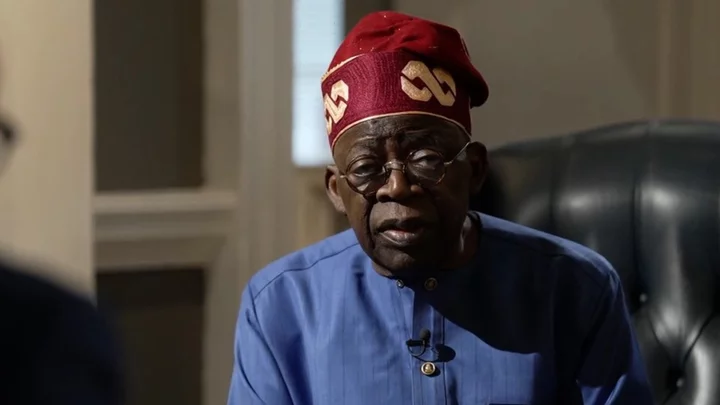
Bola Tinubu diploma: No evidence Nigeria's president forged college record
Allegations that Bola Tinubu's diplomas were fake went viral after the release of his school documents.
1970-01-01 08:00

David de Gea causes stir after attending Man Utd's Women's Champions League match
Manchester United legend David de Gea showed his support for the club's women's team during their 1-1 draw with Paris Saint-Germain in the Women's Champions League on Tuesday night. The goalkeeper left the club when his contract expired in June.
1970-01-01 08:00

Steve Rider tells men to ‘recognise your vulnerability’ after prostate cancer diagnosis
Sports commentator Steve Rider has shared a message encouraging men to be conscious of their health after his prostate cancer diagnosis. Rider, 73, was told he had the disease last month after a biopsy. The former Grandstand and Sportsnight presenter will undergo surgery to treat it this weekend. Ahead of the operation, Rider shared some insight into his journey to diagnosis, which began when a friend was diagnosed during a routine health check. “He had a scan which showed some alarming things going on with the prostate and within a month he had the full operation and that woke everybody up because he had no symptoms and very fit guy, and roughly our age,” Rider told the PA news agency. After initially testing, Rider’s readings for cancer were “not that high”, so he’d planned not to take further action. His wife, Jane, urged him to have further tests, and a biopsy was taken. He continued: “I thought the worst that can happen is that I’m going to be monitored for the next six months or so and we got the results of the biopsy the next day and they said, ‘No, you come in as soon as you can, we’re going to operate.’” Rider said his diagnosis was aided by his friends having open conversations and his wife encouraging him to get further tested. “We do tend to treat these things a little bit like getting your eyes tested or ears done, you can put it off and maybe think ‘Well, I’ll wait till the symptoms come’. “Symptoms don’t come and when they do, it is probably too late.” He added: “The message is to recognise your vulnerability, especially with age and family history and so on. And if you do feel that you fall into those categories, then get yourself checked.” According to the charity Prostate Cancer UK, 144 men are diagnosed across the country each day – more than 52,000 per year. Rider’s former BBC colleague Bill Turnbull died in August 2022, nearly five years after being diagnosed. After sharing his diagnosis publicly in March 2018, Turnbull detailed his treatment in a Channel 4 documentary called Staying Alive. Speaking about the late broadcaster, Rider said: “The great thing about Bill was that he wanted to turn his misfortune into an information campaign which would save hundreds of others and I’m sure that probably hundreds and thousands of men have stepped back from a really serious cancer because of the attention that Bill Turnbull brought to early diagnosis and testing. “And apart from that, he was a lovely, lovely guy.” Rider found out that he had cancer the day after taking part in sports presenter Jeff Stelling’s charity Football March in Turnbull’s honour. Prostate Cancer UK has said the disease affects one in eight men in the UK and that more than 12,000 men die every year from the condition. They advise that if a man is over the age of 50, Black, or has a family history of prostate cancer that he may want to speak to a GP as these are higher risk factors. To find out more about your prostate cancer risk, or that of your partner, father or friend, you can visit Prostate Cancer UK’s website – prostatecanceruk.org/risk-checker – and try the 30-second online risk checker. Additional reporting by PA Read More Cancer cases in young people ‘are rising’ – the warning signs to look out for Jeff Stelling leads hundreds to complete Wembley to Wycombe walk in honour of Bill Turnbull Duran Duran’s Andy Taylor claims he was ‘visited by angel’ after starting new cancer treatment The psychology of Big Brother: How to survive in the house Sports culture is ‘intimidating’ and putting people off working out Israel-Hamas conflict: How to talk to teenagers about distressing news stories
1970-01-01 08:00
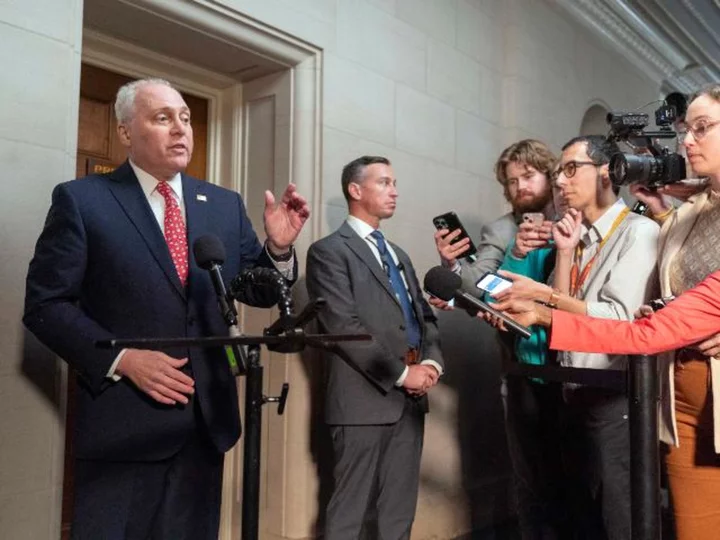
House GOP gears up to pick speaker nominee, but it's unclear if any candidate can get the votes
House Republicans are set to meet behind closed doors Wednesday to pick a nominee to be the next speaker -- but it remains unclear whether any candidate will have enough the support to win the gavel following Kevin McCarthy's abrupt ouster.
1970-01-01 08:00

The psychology of Big Brother: How to survive in the house
Big Brother has returned to British TV for the first time in five years. Hosted by AJ Odudu and Will Best, the ITV reality show has kicked off with 16 housemates living together in a custom-built home without access to the outside world – all in a bid to win £100,000. Since Big Brother first aired on Channel 4 in 2000, it’s become known as the ultimate social experiment. Here are a few tips from psychologists on how the new contestants can survive being cooped up in a house with a group of strangers, under the continuous monitoring of Big Brother… The psychology of Big Brother For Dr Rachael Molitor, a psychologist and lecturer at Coventry University, the psychology behind Big Brother involves “the intricate interplay of 24/7 surveillance on human behaviour, participant isolation from the outside world, and psychological challenges around newly formed and integral social friendships and group dynamics”. Although it may be deemed similar to other TV programmes, such as Love Island or The Traitors, where contestants also live together in a new home, Big Brother is different. “It has a unique stance, in that the contestants are not a cookie cutter of a particular type of person needed for the show’s storyline,” Molitor said. “With Love Island and My Mum Your Dad, the contestants needed to be single and of a certain age or criteria. With Big Brother, we can see a number of varying contestants, all with different backgrounds and personalities.” However, Molitor notes that Big Brother is “less of a psychological observational experiment” and “more of a TV entertainment viewing opportunity – and edited as such”. She said: “The environment provides a rich opportunity for the study of human behaviour, social dynamics, and the psychological effects of living in a controlled, highly competitive and monitored setting.” How can contestants survive in the Big Brother house? For Molitor, the key to survival is for contestants to be themselves. “Due to the length of time contestants will be on the show, it’s important to build strong genuine relationships. Effective communication supports the positive experience of all housemates,” Molitor added. Dr Sarita Robinson, associate dean of psychology and humanities at the University of Central Lancashire (UCLan) agrees, and said: “Like with any group of people in an enclosed space, inter-group conflict is likely to occur. “Rather than reacting immediately to something that has annoyed you, it is best to walk away and wait for 15 minutes. It’s amazing how a little bit of time can take the heat out of a situation for the contestants.” How can they protect their mental health? Taking care of your mental health isn’t always the easiest thing to do on a reality TV show, Robinson suggested. “Due to social evaluative stress that relates to what people think of us, this can have a marked impact on our physiological stress levels if we think people are making negative judgements about us.” But things have changed since the show first aired. “With the new care of duty plan, contestants can ask for help when needed and get mental health and wellbeing support prior to, during and after the show has ended,” Molitor said. Whilst in the house, there are a few “small health-enhancing behaviours” contestants can do. These include “getting enough sleep, exercise and healthy eating to support their health and wellbeing throughout”, Molitor advised. Robinson also warned against behaviours that might impact your state of mind. “If people start to stress their brains by drinking alcohol, having poor quality sleep, restricting their food intake or changing their normal use of things like nicotine, caffeine or medication like antidepressants, it can have an impact on the brain,” Robinson said. “For example, if you don’t get a good night’s sleep your brain will struggle to work as well as it usually does, which can cause problems with emotion regulation. The knock-on effect of this might make you more likely to be grumpy and have a row with someone.” Big Brother airs nightly on ITV2 and ITVX, excluding Saturdays. Read More How to support someone coming out in their 30s and beyond Israel-Hamas conflict: How to talk to teenagers about distressing news stories Autumn décor ideas for a seasonal refresh Why you shouldn’t tidy your garden too much in autumn World Mental Health Day: 5 ways to beat anxiety and change your life Alternative veg to grow for next season
1970-01-01 08:00

PGMOL chief reveals how referees will avoid Luis Diaz blunder in the future
PGMOL chief Howard Webb reveals how Premier League referees will avoid blunders similar to Luis Diaz's disallowed goal at Tottenham in the future.
1970-01-01 08:00
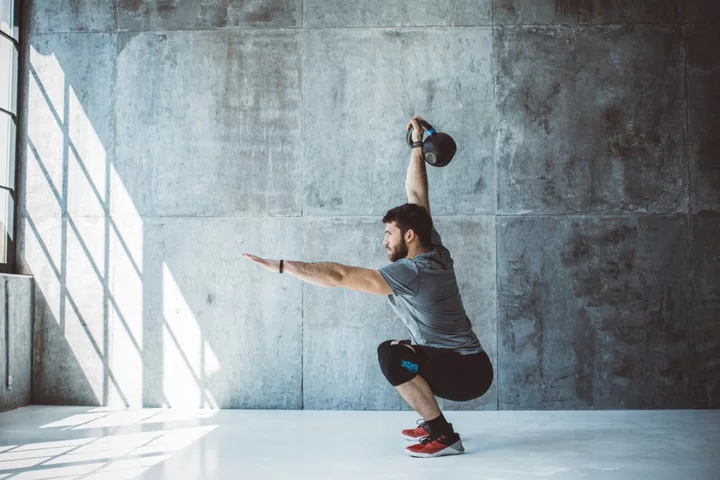
Sports culture is ‘intimidating’ and putting people off working out, study finds
Intimidating sports culture is putting millions off working out – as many are feeling alienated by the exercise industry. A poll of 2,000 adults who don’t exercise found 68 per cent feel too embarrassed to go to the gym because they don’t fit the mould of the “typical” gym goer. More than three-quarters (78 per cent) don’t find sports adverts motivating and 33 per cent say adverts actually put them off working out. However, 55 per cent would be more likely to exercise if they saw everyday people in sports adverts. And 20 per cent would be more inspired to do something active if there were more realistic expectations set by the industry. A further 29 per cent say sports brands aren’t relatable to them, and a quarter think exercise culture is intimidating. While 49 per cent wish they had more confidence to exercise. The research was commissioned by ASICS as part of its ‘New Personal Best’ campaign, which is calling out performance-obsessed exercise culture in partnership with mental health charity Mind. Gary Raucher, European vice president for the sportswear brand, said: “The sports industry has been telling us for years that the only thing that matters is a faster time, a longer distance, a higher score, and more reps. “Although it’s aimed at motivating people, our research shows it’s having the reverse effect and instead creates an intimidating culture that’s putting people off exercise – something we’re committed to change.” As part of the research, survey respondents were shown a series of marketing images from sportswear and athletic brands and asked to comment on how the pictures made them feel. Just over one in 10 (12 per cent) said the images made them feel ‘inferior’, 13 per cent felt intimidated and for seven per cent, the images even made them feel depressed. It was found 16 per cent typically come across these types of images on social media, with 42 per cent admitting seeing boastful exercise posts makes them feel like a failure – even before they’ve started exercising. Hayley Jarvis, head of physical activity at Mind, added: “For people who don’t exercise, taking that first step can be daunting, especially if they’re also experiencing a mental health problem. “When you add the pressure of performance so often seen in sports marketing or on social media, for some it can feel impossible to get started as they don’t feel like they’re ‘good enough’. “Getting active can play a vital role in helping us stay and live well with mental health problems.” The survey, which was conducted via OnePoll.com, also found 23 per cent of non-exercisers feel too embarrassed to start now, and nearly one in five (18 per cent) worry people would judge them as they are too unfit. Over three quarters (77 per cent) admitted they are aware of the mental health benefits of exercise. But despite 61 per cent saying they have either personally experienced a mental health problem or know someone who has, it is still not motivation enough to get them moving. Mental health activist and TV personality Dr Alex George, who is supporting the ASICS campaign, said: “As someone who is passionate about the benefits of exercise on mental health, it’s upsetting but unsurprising that people feel excluded and alienated by the sports industry. “I too have felt intimidated and insecure after comparing my performance and results to others. “People need to know that regardless of the type of exercise they do, or the times or distances they achieve, any movement benefits mental health and is something that should be celebrated.” The ‘New Personal Best’ campaign features everyday people and is encouraging them to share their own ‘personal best’ images on social media using the hashtag #NewPersonalBest on World Mental Health Day, 10th October. One of which is Tom Durnin, whose inspirational story caught the sports brand’s attention when he finished in last place at the London Marathon 2023. He said: “For me, it was all about crossing that finish line no matter how long it took me. I run purely because it makes me feel good, I don’t worry about my time or being the slowest. “I never thought I’d ever be the face of a sports campaign but I’m honoured to be partnering with ASICS to encourage more people to move for their mental health. “If my story can inspire at least one person to take the first step that’s all I could ask for.” Read More Brits reveal advice they would give their younger selves - including investing in property Girls in UK have much lower confidence than male peers, study finds Average person completes 90 online tasks a day Israel-Hamas conflict: How to talk to teenagers about distressing news stories How to get rid of bedbugs: Signs and symptoms amid threat of UK invasion How to support someone coming out in their 30s and beyond
1970-01-01 08:00
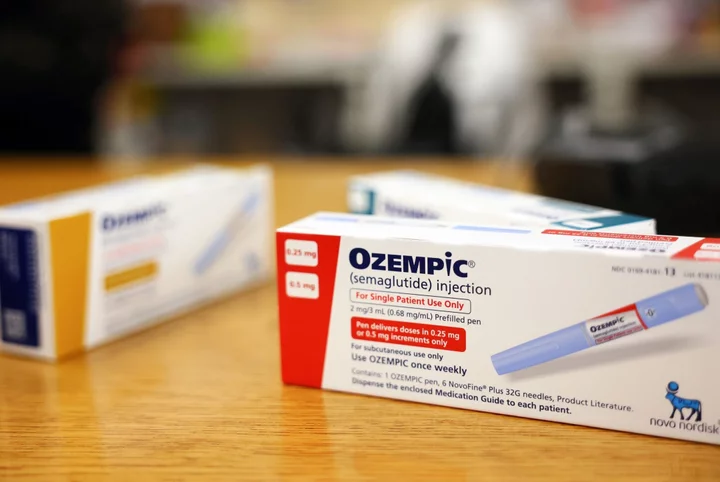
Novo’s Blockbuster Ozempic Now Shows Kidney Promise, Hitting Rivals
Novo Nordisk A/S said a kidney failure study of its diabetes drug Ozempic showed effectiveness surprisingly early, sending
1970-01-01 08:00
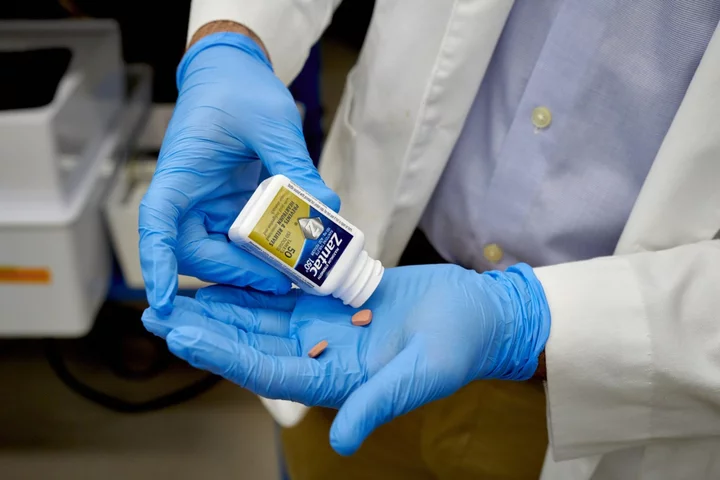
GSK Settles Zantac Lawsuit Set for Trial in California
GSK Plc reached a settlement for another US lawsuit claiming the drugmaker’s blockbuster heartburn medication Zantac causes cancer.
1970-01-01 08:00

UN 'deeply concerned' over reports women and children killed in Myanmar bombing
The United Nations says it is "deeply concerned" by reports that civilians, including women and children, were killed and injured in a bombing at a camp for internally displaced people in Myanmar.
1970-01-01 08:00

Australian reporter Cheng Lei released from China after three years detention over espionage charges
Australian TV anchor Cheng Lei has been released by China, Australia's Prime Minister Anthony Albanese announced Wednesday, more than three years after she was detained on espionage charges.
1970-01-01 08:00

Analysis-Use of weather derivatives surges as extreme climate events rock the globe
By Harry Robertson LONDON Energy companies, hedge funds and commodity traders are stepping up their use of financial
1970-01-01 08:00
